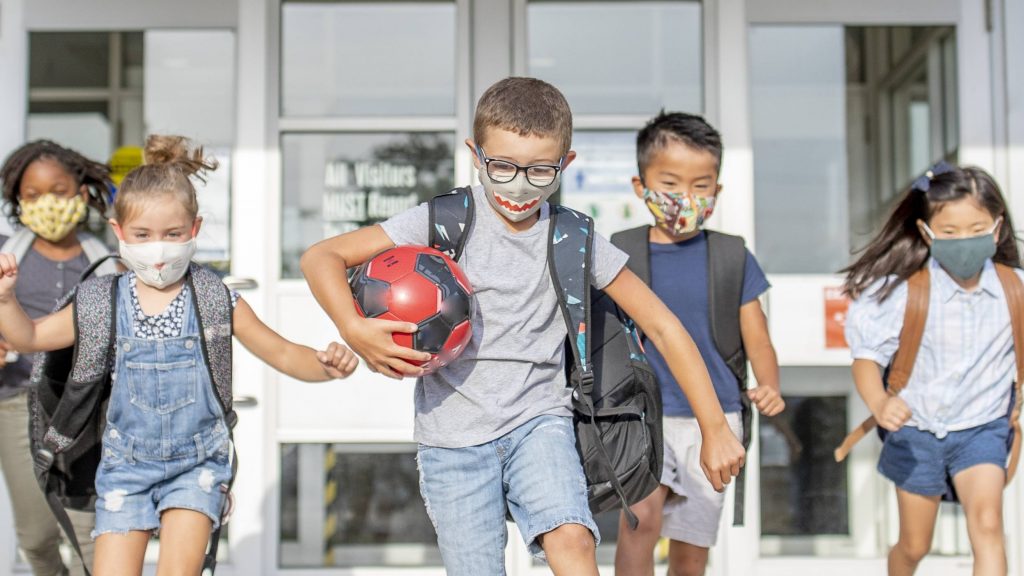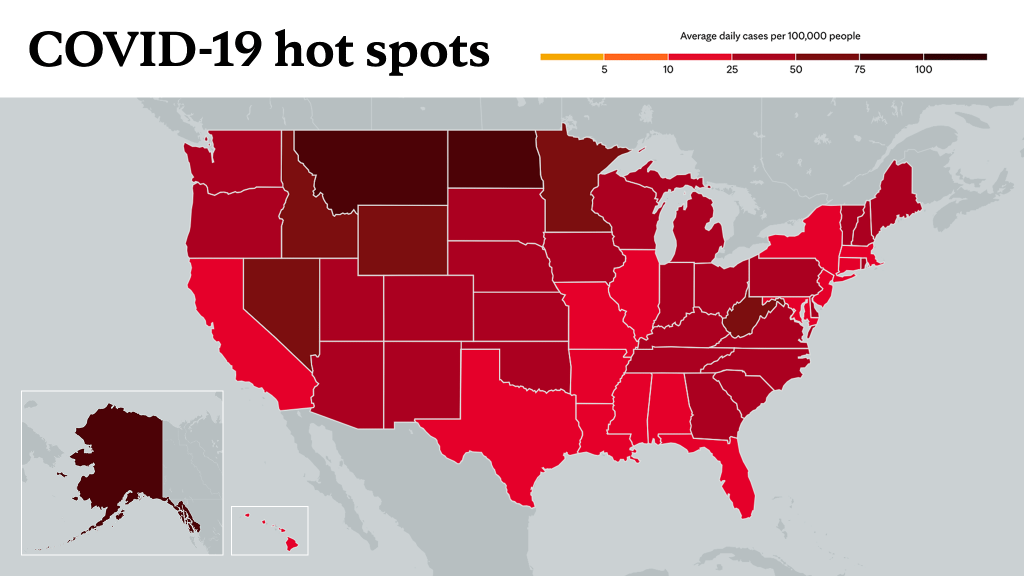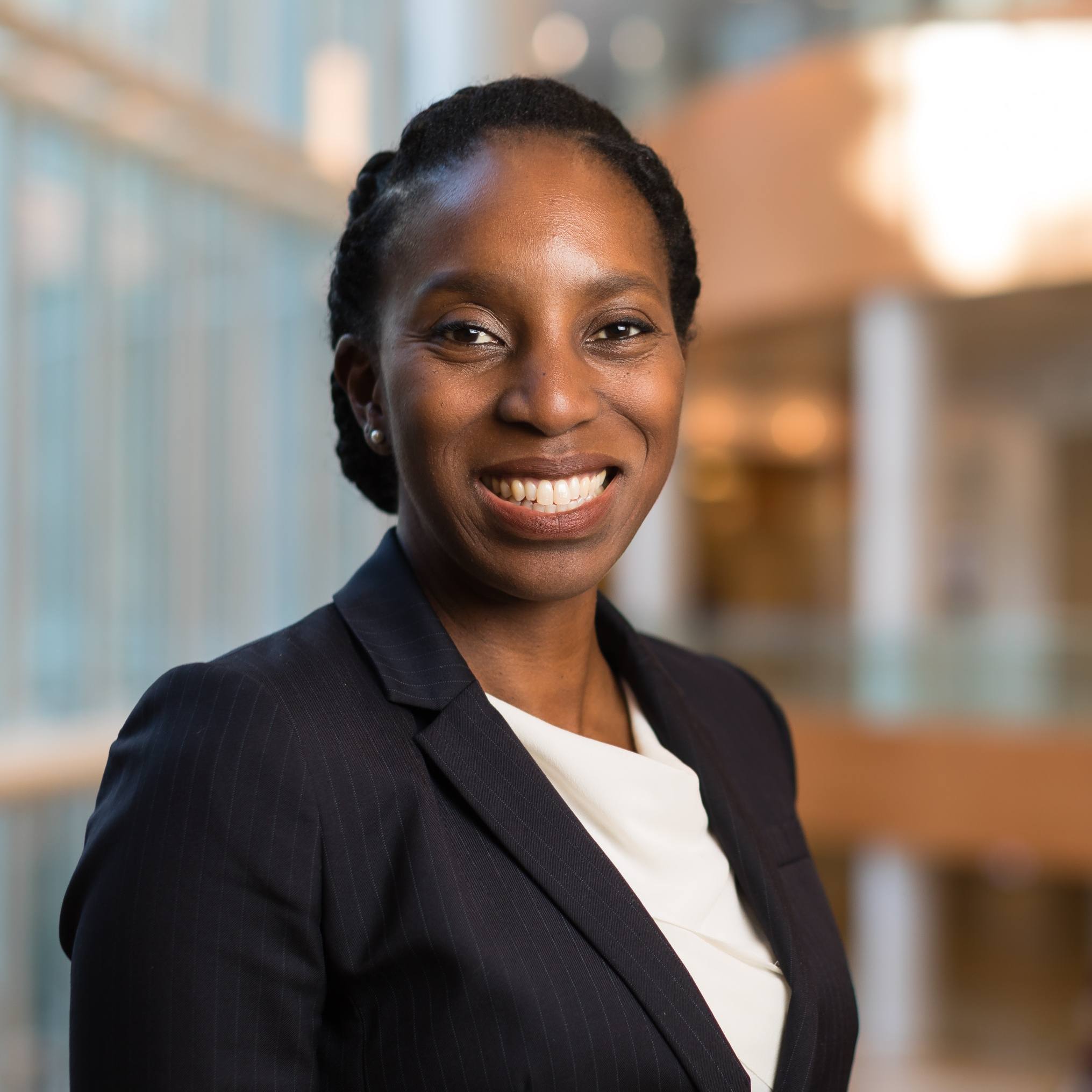
President Biden has released his rollout plan for COVID-19 vaccines in anticipation of approval to use the Pfizer COVID-19 vaccine for children ages 5–11 as part of an emergency use authorization.
"The FDA (Food and Drug Administration) will be meeting to review the data that was submitted for emergency use authorization on Oct. 26," says Dr. Nipunie Rajapakse, a pediatric infectious diseases physician with the Mayo Clinic Children's Center. "After it goes through that process, and if it is approved by the FDA, the next step will be for the Advisory Committee on Immunization Practices ― that is an advisory committee to the CDC (Centers for Disease Control and Prevention) ― to review and make a recommendation either for or against vaccination."
Watch: Dr. Nipunie Rajapakse talks about kids and COVID-19 vaccines.
Journalists: Sound bites with Dr. Nipunie Rajapakse are in the downloads at the end of the post. Please courtesy: "Nipunie Rajapakse, M.D. / Pediatric Infectious Diseases/ Mayo Clinic."
Vaccinations won't take place immediately, says Dr. Rajapakse.
"We anticipate at the earliest, early November, the vaccine may become available for use in this age group. Certainly, sometime in November, we hope that we will see that the vaccine is available."
"Pfizer has submitted an application for emergency use authorization for a two-dose series, a vaccine for children 5 to 11 years of age," says Dr. Rajapakse. "The two doses are spaced 21 days apart, which is the same as what has been authorized for use in adults, but the dose is smaller. It's about a third of the dose that we give to teenagers and adults. Early studies have shown that the vaccine is safe and effective."
COVID-19 vaccines are now available for children 12 and up.
"We highly recommend anyone over 12 years of age gets vaccinated. Vaccination significantly reduces your risk of getting sick, ending up in hospital or dying from COVID-19," Dr. Rajapakse says.
Along with vaccination, Dr. Rajapakse says it's important to follow other safety protocols to reduce the risk of COVID-19 and other respiratory infections:
- Wear masks in public spaces.
- Practice good hand hygiene.
- Stay home if you are not feeling well.
- Practicing physical distancing of 6 feet as much as possible.
A COVID-19 vaccine can prevent children from getting and spreading the virus that causes COVID-19. If a child gets COVID-19, a COVID-19 vaccine could prevent him or her from becoming severely ill.
"We also know that there's a rare complication called multisystem inflammatory syndrome in children that can be life-threatening as well. The only way to prevent that is to prevent kids from getting COVID-19. And that's another reason why vaccination is an important part of preventive strategies," Dr. Rajapakse says.
Read more:
- "Mayo Clinic Q&A podcast: Vaccines and kids — what you need to know about COVID-19, flu."
- "Flu shots and COVID-19."
- "How COVID-19 delta variant is impacting younger people."
Information in this post was accurate at the time of its posting. Due to the fluid nature of the COVID-19 pandemic, scientific understanding, along with guidelines and recommendations, may have changed since the original publication date.
For the safety of our patients, staff and visitors, Mayo Clinic has strict masking policies in place. Anyone shown without a mask was either recorded prior to COVID-19 or recorded in a nonpatient care area where social distancing and other safety protocols were followed.
For more information and all your COVID-19 coverage, go to the Mayo Clinic News Network and mayoclinic.org.
Learn more about Tracking COVID-19 and COVID-19 trends.








